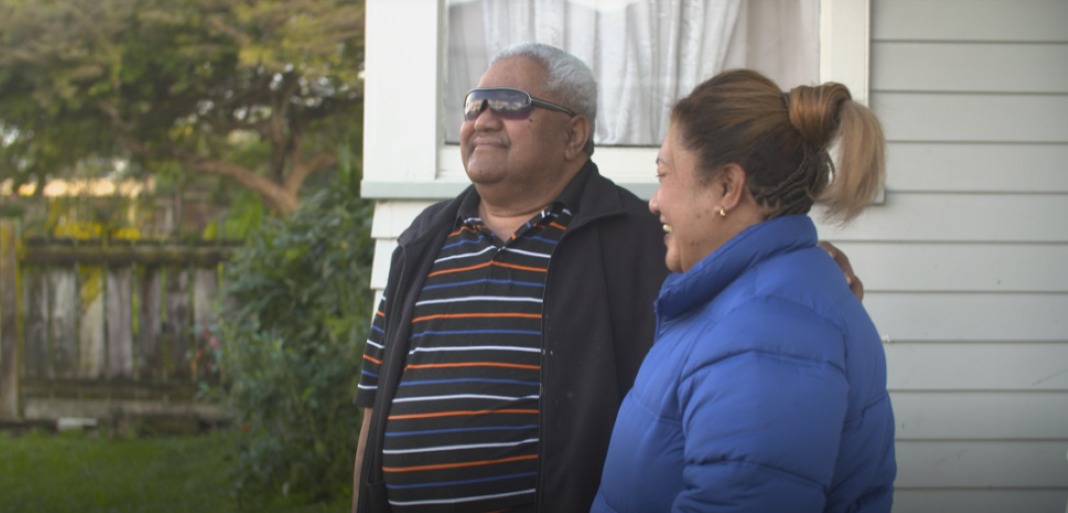Alamoni Langi, a resident of New Zealand, heavily relies on his wife Mele, who has been his constant companion for the past six years. Alamoni, who has been blind since the age of 15 and is physically disabled due to a stroke, expresses that he would be completely lost without her support.
Despite their marriage in 2017, the couple has been facing challenges in securing Mele’s residency as Immigration New Zealand questions the legitimacy of their relationship. This disbelief persists despite a substantial amount of evidence, including 36 documents ranging from bank statements to letters from church leaders, a doctor neighbor, disability groups, medical authorities, and members of the community, all attesting to the authenticity of their relationship.
Alamoni and Mele first met in Tonga in 2016 and later reconnected in Auckland when Mele visited New Zealand for a kava event, where Alamoni was also present. Their lawyer, Soane Foliaki, highlights the cultural disconnect between Immigration NZ and his Pasifika clients and expresses disbelief that such a significant amount of evidence has been disregarded. He emphasizes that in Tonga, when you marry, you are recognized and respected as a married couple, given the close-knit nature of the community.
Alamoni, speaking in Tongan, shares with 1News that if Mele were to be sent back to Tonga, it would have devastating consequences for his well-being, even potentially leading to his death. The couple was heartbroken upon learning that Immigration NZ did not consider their marriage to be genuine.
In response, Immigration NZ acknowledges sympathy for the couple’s situation and expresses a desire to find a resolution. However, Richard Owen, a representative from the agency, maintains that the decision to reject Mele’s application in 2021 was the right one. He advises the couple to provide documentation demonstrating the stability of their relationship and suggests applying under section 61 of the Immigration Act, despite their lawyer’s prior attempts which were met with rejection.
Soane Foliaki remarks that such decisions are not uncommon, stating that Immigration NZ has transformed Mele from a law-abiding individual with a valid visa into an “unlawful” person who could potentially face deportation.
Original story was first published by 1News





